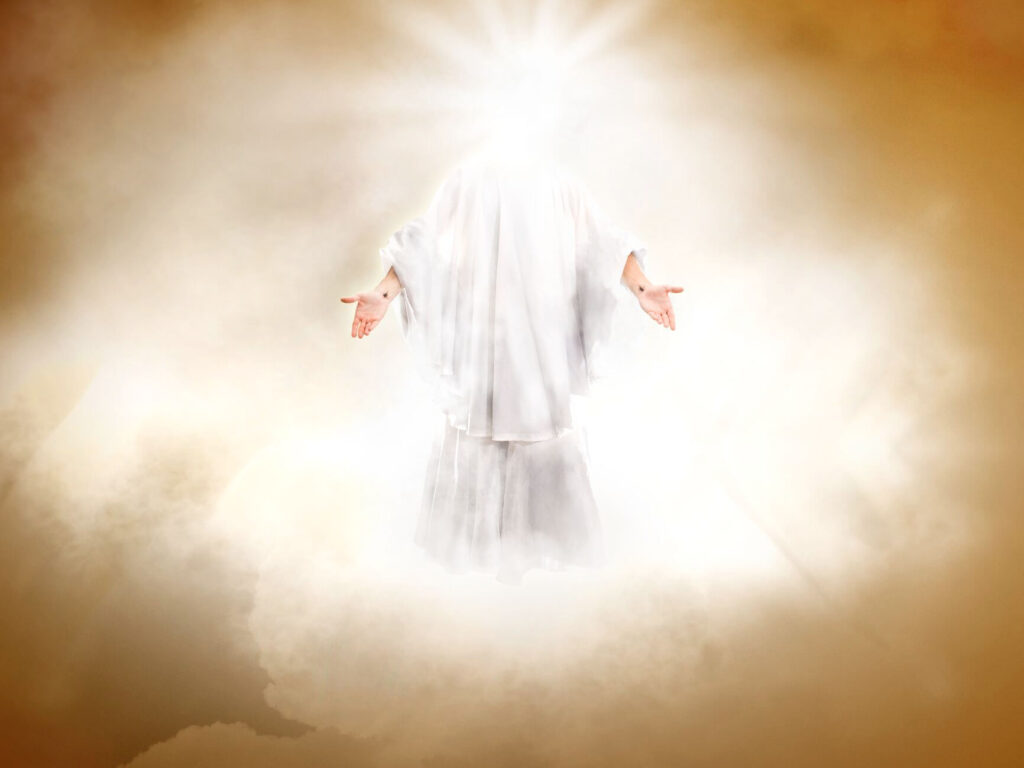Main Scripture: Judges 6:1-6
Again the Israelites did evil in the eyes of the LORD, and for seven years he gave them into the hands of the Midianites. 2 Because the power of Midian was so oppressive, the Israelites prepared shelters for themselves in mountain clefts, caves and strongholds. 3 Whenever the Israelites planted their crops, the Midianites, Amalekites and other eastern peoples invaded the country. 4 They camped on the land and ruined the crops all the way to Gaza and did not spare a living thing for Israel, neither sheep nor cattle nor donkeys. 5 They came up with their livestock and their tents like swarms of locusts. It was impossible to count the men and their camels; they invaded the land to ravage it. 6 Midian so impoverished the Israelites that they cried out to the LORD for help. NIV
The book of Judges describes a very sad time in the history of Israel. They had no king, and everyone did as they saw fit (Judges 17:6). Each time they drifted away and suffered under the hands of their enemies, they cried out to God. And God would send a deliverer – a judge – who will help them and free them from bondage.
In chapter 6, we read that the people had been suffering for 7 years under the hands of Midianites. They were so oppressive that the Israelites had to hide in mountain clefts and caves (v.2). Whenever they planted some crops, the enemies would come and destroyed them all. The Bible says in v.4 they “did not spare a living thing for Israel, neither sheep nor cattle nor donkeys.” And when they come, “they came up with their livestock and their tents like swarms of locusts…”, so huge a force that “it was impossible to count the men and their camels.” In fact, in 7:12 says that their camels “could no more be counted than the sand on the seashore.”
Look at what Gideon was doing, and we will know how desperate the situation was. V.11 says Gideon “was threshing wheat in a winepress…” That was strange because no one threshes wheat indoors. They do it out in the open fields where the wind can help separate the wheat from the chaff. And Gideon was threshing grain indoors to hide it from the Midianites. Imagine you have to work in hiding for your livelihood.
If we understand human needs according to Maslow’s hierarchy of needs – all their basic needs were not met. They were looking for shelter, for food, for safety, security. In such a desperate situation, “the Israelites cried out to God for help.” (v.6).
Praise be to God! When man cries out to God, He listens and He responds. And He came to their rescue. That’s the pattern throughout this book. God cares about man. He cares enough to act. And to prove that to Gideon, God sent a prophet who said:
Judg 6:8-10
“…”This is what the LORD, the God of Israel, says: I brought you up out of Egypt, out of the land of slavery. 9I snatched you from the power of Egypt and from the hand of all your oppressors. I drove them from before you and gave you their land. 10I said to you, ’I am the LORD your God; do not worship the gods of the Amorites, in whose land you live.’…”
God delivers people from bondage, sets them free so that they can return to Him – the true God and worship Him. God cares enough, to free us from the bondage of sin, set us free, give us the gift of an abundant and eternal life, so that we can be reconciled to Him and worship Him again. It is as if God says, “I did not free you so that you would suffer; I freed you so that you can return to Me, worship Me and be blessed!”
But that was not the case of Israel, because the last line said: “But you have not listened to Me.” (v.10b). They had chosen to go their own way and do their own thing. 6:1 “Again the Israelites did evil in the eyes of the Lord.” It was not God who had moved away, but man. It’s we that’s have drifted from God.
So God sent Gideon to restore the situation. In studying this history, a number of lessons emerge:
(1) Don’t define God by your limited experience
The angel appeared to him and said, “The Lord is with you, mighty warrior.” (v.12). Gideon was surprised to hear that. Looking at the sufferings he was going through, his reply was one of disbelief – “if the Lord is with us, why has all this happened to us?” (v.13).
We ask the same question all the time:
· Maybe someone has cancer, and is spending lots of money going through chemotherapy treatment… Why? Why must this happen to me? If God loves me, how can this happen to me?
· Maybe you’ll just got your exam result from your teacher, realized you had failed most of your subjects. You had to repeat another year. Why didn’t God help me? If God is with me, how can this happen to me?
· Your business is not doing well. In fact, this month you’re not able to pay your rent and normal bills. Possibly you had to layoff some of the staff. Creditors are threatening to come after you. If God is with me, this should not have happened…
Man asks today, “If God is good, why is it that there are so much sufferings in our world today?” The blame is on God. We put the responsibility on His shoulders.
We end up with this conclusion – Gideon’s conclusion (v. 13b): “but now the Lord has abandoned us and put us into the hand of Midian.” God must have left us.
Looking closely at this passage – we see some clues why Israel was under oppression –
v. 1 – they did evil in the eyes of the Lord
v. 10 – they worshipped the gods of the Amorites (v.10).
They had chosen to turn away from the God who could bless them.
Human suffering is the consequence of human sin and folly. Isa 53:6 “We all, like sheep, have gone astray, each of us has turned to his own way…”
We have chosen to depart from God and do our own things. The world has fallen away from God and His ways. And we are experiencing the consequences of such an act. We are living in a fallen world, among fallen men.
God has not abandoned us. In fact, He is the One looking for us. Jesus “came to seek and to save what was lost.” (Luke 19:10). Gideon was wrong. Their sufferings awakened them from their sinful ways and drove them back to God. Some things happen to awaken us up from our sleep and bring us back to God. Therefore, don’t define God through your limited experience, the way Gideon was doing.
(2) Don’t doubt God out of ignorance
And then Gideon went on to say, in middle of v.13, “Where are all His wonders that our fathers told us about when they said, ‘Did not the Lord bring us up out of Egypt?’”
Gideon was so obsessed with his problems that he failed to see God or experience God’s presence. He was so overwhelmed by his suffering that he failed to see God with eyes of faith.
· It is precisely because God did wonders in the past that we can trust Him today. God did not deliver Israel from Egypt so that they will one day suffer and perish. God did not save us so that we will one day perish. God did not redeem us by the blood of Jesus, and then see us perish in life through pain and suffering.
Apostle Paul says he is confident of this, “that He who began a good work in you will carry it on to completion until the day of Christ Jesus.” (Phil 1:6).
God has a wonderful plan for your life and if He paid the price of Jesus to redeem you, be assured that your life is of great worth to Him. We must see with eyes of faith. Let us not allow life’s problems to cause us to doubt God. God is still a good God.
So we: (1) don’t define God through our limited experience, and
(2) Don’t doubt God out of ignorance.
God is more than your experience. A hymn writer came up with the phrase: “Turn your eyes upon Jesus, look full in His wonderful face, and the things of earth will grow strangely dim, in the light of His glory and grace.” God will help us overcome. In actual fact, “we are over-comers.”
We need to have first-hand experience with God. Gideon had heard about God’s wonders… “our fathers told us about…” He may not have personally known God and His workings in his life. Therefore we see in the later part of this chapter he was always asking God to prove to him that it was He who was speaking to him.
We need to have a personal relationship with God, each of us… children need to have their own fellowship with Jesus. Faith cannot be passed down. We can teach and educate them, but eventually they must know and experience God themselves. God must be real not just to our fathers, but to us as well. Ultimately it must not just be God’s wonders “that our fathers told us about” but God’s wonders that I had experienced.
“God has no grandchildren, just children.”
(3) Don’t limit God through your own limitations
And then the Lord tells Gideon that’s he is the man of the hour. God is going to send him to deliver His people from the enemies. Yet his first reaction was disbelief. 6:15 “”But Lord,” Gideon asked, “how can I save Israel? My clan is the weakest in Manasseh, and I am the least in my family.””
Gideon doubted God’s ability to use him. He wanted God to do mighty things to save Israel… yet when God wanted to use him to do that, he finds it hard to accept. We want God to do great things – revive the church, bring in the lost, bless our family… and then when God tells us He is going to do that through us, we find it hard to accept.
God said it very well, “Go in the strength you have and save Israel…” (v.14). God did not expect Gideon to be a superman – He said, just go in the strength you have. When God calls us to serve Him, we simply come with what we have. God is looking for a willing heart, an obedient heart. The important thing is v.14b “Am I not sending you?” and v.16 “Surely I will be with you, and you shall defeat the Midianites as one man.” (NKJ).
Don’t say you are too small, too weak, not talented, not gifted… when God calls you, He will enable you. Just come as you are. The important thing is not in your “little strength” but whether God is going with you. If He is, then we can “defeat the Midianites as one man.”
God is patient with man. Gideon found it hard to believe. He asked for signs and God did a couple of them to reassure him. Eventually, in Judges 7 we read of Gideon’s success – all because he finally put his faith in God. He saw God’s wonders – not just what his fathers told him about, but something he experienced personally.
CONCLUSION: Don’t define God through your limited experience. His Name is Immanuel – “God with us”.
· Don’t doubt God out of ignorance. Heb 13:5b-6 “…God has said, “Never will I leave you; never will I forsake you.” So we say with confidence, “The Lord is my helper; I will not be afraid. What can man do to me?”
· Don’t limit God through your own limitations. John 14:12 “I tell you the truth, anyone who has faith in Me will do what I have been doing. He will do even greater things than these, because I am going to the Father.”


